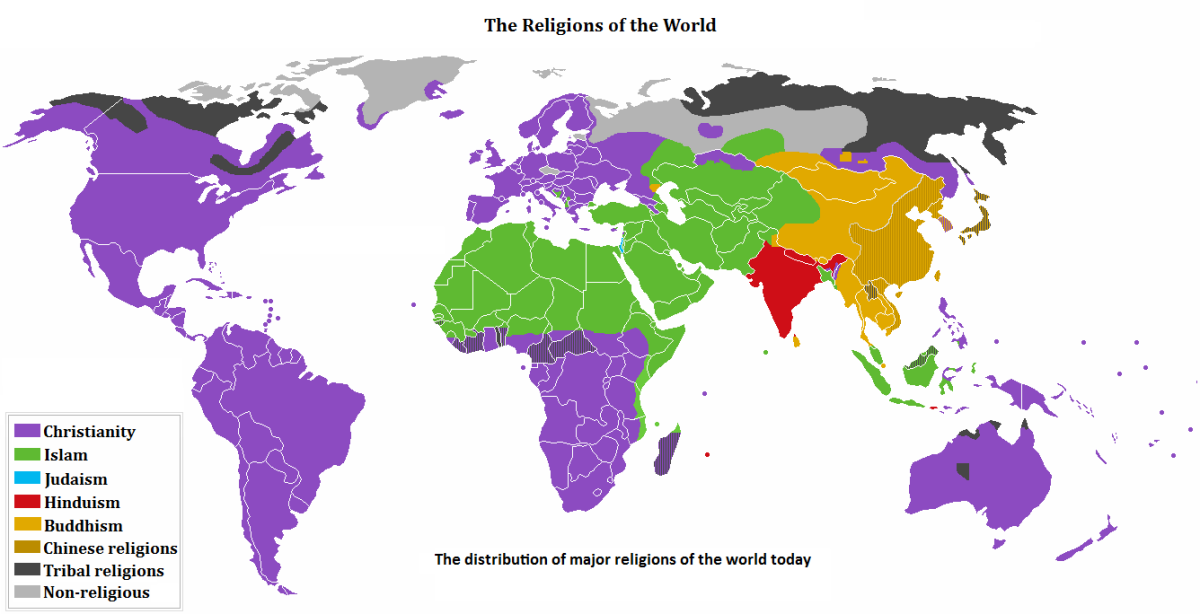Who's A Jew 2: Karaite Perspectives

I must admit that I had not conceived writing as second article on this subject but it is always enjoyable when an article brings questions and challenges and hence takes on a life of its own. The first article on “Who is a Jew” was intended to incite such questions because it is one of the fundamental breaches between Karaite and Rabbanite Judaism. From the comments to that first article one will see that it has stirred emotions, especially when my Deuteronomical based belief that anyone can adopt the Hebraic faith (hereafter referred to as Judaism) by openly following all that is proscribed in the Tanach. Of course, there will be those that object, insisting that there are far more stringent requirements, such as strict conversion practices, genetic links, multiple generations of practice, etc. None of these are insisted upon nor stated emphatically in the Torah. They are personal based beliefs founded upon exclusivity, a practice which has been detrimental throughout history to our survival as a people and a failure to perform God’s commandment to us to be “Or HaOylum”; a light until the world. At the point at which we as men place restrictions on who and when we can be joined in the practice of worshipping the Almighty, the God of the Universe, then we have elevated ourselves to a false position of authority in thinking we can challenge this commandment, acting as gatekeepers of the faith and refusing entry to those we deem unworthy. Who are we to judge; who are we to decide the fate of those that wish to believe; who are we to play God?
One such challenge comes from a reader that insists there is a three generation rule that in itself is a requirement to demonstrate continuous faith within a family before there can be acceptance. As you will see in the comments beneath that first article, repeatedly he uses the expression, “It is the Law.” But at no time do I see the citation from the Torah which says that this is a fact. I know of what he speaks. I have heard it before. It is an inference from the phase, Elohay Avraham, Elohay Yitzhuk, Elohay Yaakov, or the God of Abraham, Isaac and Jacob. But this was never a testament of a three generation rule but instead how God had selected a nation before there even was a Torah, before there was anything that could be referred to as Judaism, and he had unswerving loyalty from those three generations of the tribe He had selected. They are the determinants why God loved this people in particular but not a determination of what was required to be His people generational-wise. To infer more into the recitation of these three generations would be incorrect.
The Laws
Since the comment that it is "THE LAW" has come up, then why don't we look at what that actually means. When it comes to the laws determining who is and who isn’t Jewish there have been a plethora of them but let me remind you that they are all manmade and as part of the codex of halakha, they are Rabbanite. Let’s examine some of these for the sake of completeness. According halakha a child is not Jewish if the child's mother is not Jewish. The ruling it is claimed is derived by the Rabbis from various sources including Deuteronomy 7:1-5, Leviticus 24:10, Ezra 10:2-3. Upon reading this section of Deuteronomy referred to, it is a prohibition of which tribes could not become part of the twelve tribe confederacy. It was not a law on who could be considered Jewish but who would never be. In actuality it was a lesson in political science of how when one nation makes an attempt to absorb another, if the one it is trying to absorb is greater in size and strength the converse will often happen where the absorber becomes the absorbee. Similarly in the same book it mentions which tribes or nations could be absorbed so this never was a Law of Jewishness. Leviticus 24:10 is about a blasphemer. It is written in such a way that it causes confusion when not examined carefully. The man being a son of an Israelitish woman, the daughter of an Egyptian is considered an outsider, yet that same father is referred to as Dibri of the tribe of Dan. All it truly indicates was that those that left Egypt with Moses were a mixed multitude, a vast number of them not directly connected to the God of Abraham, Isaac or Jacob through undisturbed genealogies but instead adopters of the new faith, hence the reference as Israelitish rather than Israelite. It is also a historical indicator that the tribe of Dan may not have been from the same stock as many of the other tribes were. As for Ezra, my opinion on what he had done is well documented in my article on the Ethiopian Princess. He made a ruling that was in contradiction of the historical precedents he inherited. His motivations may have been merely a quick fix for a retuning population, or it may have been something far more political. Only he can answer in that regard but it certainly wasn't God's Law.
All branches of Orthodox Judaism and Conservative Judaism today, maintain that the halakhic rules (i.e. matrilineal descent) are valid and binding but these are their rules not mine and not those of Karaite Judaism. Of course you also add more controversy when you look at Reform and Liberal Judaism which do not accept the halakhic rules as binding, and accept a child of one Jewish parent, whether father or mother, as Jewish if the parents raise the child as a Jew and the child fosters a Jewish identity, noting that in the Bible the determination of Jewishness always followed the father as the Karaites believe, including the cases of both Joseph and Moses, who married into non-Israelite priestly families. But just to show you how each group sets its own rules which it henceforth refers to as “the Law”, Reform rabbis have set standards by which a person with one Jewish parent is considered a Jew if there have been "appropriate and timely public and formal acts of identification with the Jewish faith and people," such as a Jewish naming ceremony, or a bar or bat mitzvah ceremony. But once again we have clear reference that there is no three generation requirement and in general it is understood that to be Jewish only requires a Jewish upbringing.
Divergent opinions has always been the hallmark between Orthodox and Conservative communities, that although according to their own protocols they do not recognize the Jewishness of a person if only their father is Jewish, they have still accepted such persons into their Orthodox and Conservative communities through patrilineal descent only if it has been demonstrated that the person is sincere in his Jewish beliefs.
Converts to Judaism
For Rabbinical Judaism, the laws of conversion are based on codes of law as determined from discussions in the Talmud, through the Shulkhan Arukh, and the myriad subsequent interpretations that are held as authoritative by both Orthodox Judaism and Conservative Judaism. Orthodox Judaism recognises only those conversions in which a convert accepts and undertakes to observe halakha as interpreted by the teachings of Orthodox Judaism, which in other words means accepting only those that acknowledge the Talmud which immediately eliminates their acceptance of Karaites and a cause for controversy in the history of the State of Israel. But this also extends to other forms of Rabbanite Judaism as some of the non-Orthodox denominations do not require that converts make this commitment and therefore Orthodox Judaism does not accept them either as valid conversions.
It should be noted that Conservative Judaism is somewhat more lenient in its approach when applying the halakhic rules than are the Orthodox. It often only takes notice if the conversion procedure was performed according to rabbinic norms, rather than the authority of those performing it or the obligations undertaken by the convert. In that case it may accept the validity of some Reform Jewish conversions, but only if they include immersion in a ritual bath, a declaration before a rabbinical court and, for men, that circumcision or a symbolic circumcision for those that had already been circumcised.
Unless the previous two organizations requirements, Reform Judaism which is the denomination of Jews in North America, requires only that people considering conversion study Jewish theology, rituals, history, culture and customs, and incorporate these practices into their lives. The length and format of the course of study will vary from rabbi to rabbi and community to community, though most now require a standardized program of basic Judaism and individual study with a rabbi, along with attendance at services as part of synagogue life.
As might be already well known from my articles, Karaite Judaism does not accept Rabbinic Judaism, and therefore has different requirements for conversion. Of course, that meant that Orthodox Rabbinic Judaism refused to accept any converts to Judaism as well. Though Karaism has been quiescent for many centuries, on August 1st, 2007, the American Karaite Organization converted their first new members. At a ceremony in their Northern California synagogue, ten adults and four minors swore fealty to Judaism after completing a year of study. This conversion came 15 years after the Karaite Council of Sages reversed its centuries-old ban on accepting converts.
Finding the Truth
The truth, at least for me, is as it’s expressed in Deuteronomy 4 starting with sentence 5. “Behold I have taught you statutes and ordinances, even as the Lord my God has commanded me, that you should perform in the midst of the land in which you enter in order to possess it. Observe therefore and do them; for this is your wisdom and your understanding in the sight of the people of that land, so that when they hear all these statutes shall say, “Surely this great nation is a wise and understanding people,” with a hope on Moses part that they in turn would desire to become part of this new nation. As you may notice when your read through Deuteronomy, Moses made no conditions of acceptance as are now being proposed. He requested no generations of proof, no rejection of converts, no performance of specific rituals, since all at the time Moses was speaking to them were essentially converts. Even those that were descendants of Abraham, Isaac and Jacob, had nothing in common except ancestry, certianly not a religious bonding which is the actual Judaic entity and character. And certainly there was no forbiddance of proselytizing to the indigenous populations since it was Moses’s hope as he clearly expressed that the people of the land would admire them and choose to convert as well to this religion of the one God. Can any Rabbi dispute Moses? Can they say that this was not his message and that it is clear beyond any shadow of a doubt? There are many that have tried and many in the future that will try. But it is clearly unmistakable that the only Law in becoming a Jew is that you believe fully in the commandments and the Torah, accepting that what God has dictated to Moses is true, that you perform all the rituals as they are prescribed in the Torah, and lastly that you set an example in your beliefs for your neighbours so that others will eventuyally follow you in to the fold of Judaism.
As we take pause and sit with family for Passover, let us reflect on this. Let us remember what it was like for that first generation that would henceforth become the Children of Israel and subsequently known as Jews. And let us admire what Moses was able to achieve in a single generation without all the so-called Laws of Men on the determination of Jewishness. It is not about what Laws we can pass but what is inscribed in our hearts.








